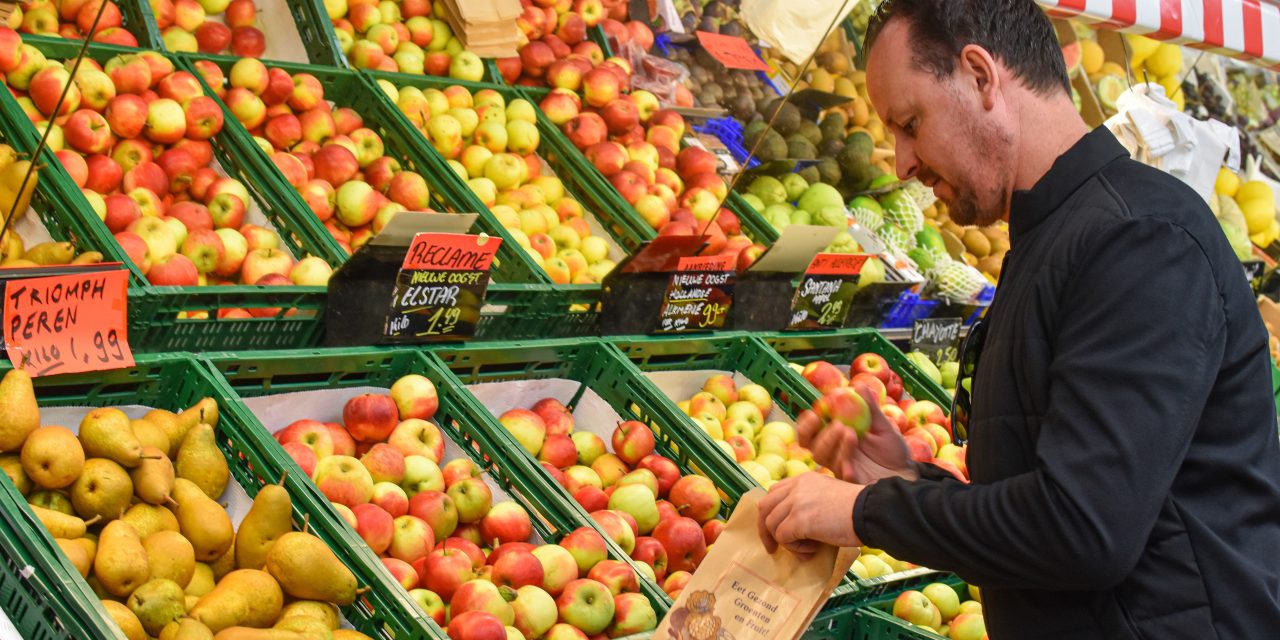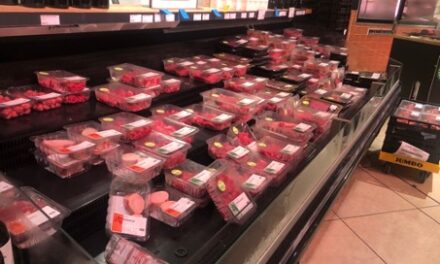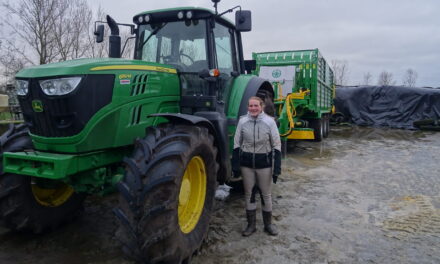[THE NETHERLANDS] The Dutch consume over 31 grams of apples per day, making it the country’s most popular fruit. For many, apples evoke a sense of nostalgia, with traditional varieties like Elstar, Jonagold and Kanzi continuing to dominate supermarket shelves. However, tropical imports such as Pink Lady and Gala are rapidly gaining ground. As Dutch apple production has steadily declined—dropping from 336,000 tons in 2015 to just 197,000 tons this year—the question arises: Is the Netherlands losing its homegrown apple?
By Siem van Eck
It’s mid-September, and apple harvesting is in full swing across the Netherlands. The orchards are rich with Elstar, Jonagold, and Kanzi apples, while supermarket shelves display a wide variety: Pink Lady, Jazz, Fuji, Granny Smith, Gala, and Golden Delicious. The Fuji apple comes from New Zealand, Pink Lady and Granny Smith from Chile, and Royal Gala and Golden Delicious from Poland, France or Belgium.
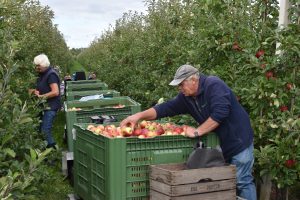
Fruitfarm Vernooij produces over 500 tons of Elstar apples- Siem van Eck
Mounting Competition
Because of this abundance, Dutch farmers are struggling to keep up. “Elstar is the only variety we can still compete with locally,” says apple farmer Toon Vernooij, who has been in the business for over 40 years and produces more than 500,000 tons of apples annually, predominantly Elstar. He has seen considerable changes in the industry over the decades. “Competition has become fierce. It started with Poland, and now we’re up against Serbia, Moldova, New Zealand, Chile—apples are flooding in from all over the world.”
For more than 30 years, Dutch apple production has been steadily declining. The primary challenge is the growing competition from countries with lower production costs, such as Poland. Since joining the European Union in 2004, Poland has become the leading apple producer in Europe, benefiting from lower labor costs and expanded export opportunities. This puts pressure not just on Dutch farmers but also on growers across Western Europe. France, Italy, and Germany are also grappling with the changes in the market.”We’ve lost the bulk of the market,” Vernooij admits, “but we still lead in innovation and quality. The question is: for how long?”
Changing Consumer Preferences
The decline in Dutch apple production is not solely due to international competition. Changes in consumer preferences are also driving more variety in supermarkets. “It’s all about giving consumers choices,” says Bas van Ravenswaaij, a fruit supplier with over 50 stores across the Netherlands, selling everything from Elstar to Pink Lady. “People want a crisp apple. Fuij and Pink Lady are rock-hard, which is why we’re seeing this shift in demand.”
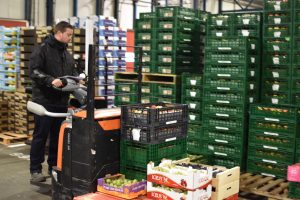
Growing competition and costumer preferences is seen by the fruit suppliers- Siem van Eck
Both Vernooij and van Ravenswaaij recognize the changing landscape of the apple market but remain optimistic about the future of Dutch apples, particularly the Elstar. “Elstar is the absolute number one in the Netherlands,” van Ravenswaaij notes. “Jonagold comes in second, and only after that do the more expensive varieties from New Zealand, Chile, or France—like Jazz or Pink Lady—come into play.”
A Steady Future for Dutch Apples?
Vernooij is determined to keep pace with the global competition. “Seventy percent of our farm is dedicated to Elstar production. No supermarket in the Netherlands can do without Elstar; it’s an institution,” he says. “That’s crucial. As Dutch apple farmers, we must continue innovating to remain competitive with international producers.”
